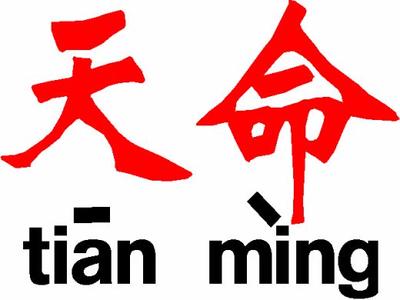Hello all!
We thought today was a good day to push up a useful concept to understand China. Despite not being tied to the Republic era but to the Imperial era, this concept we are talking about today had a huge impact over China’s mindset. Let us talk about the MANDATE OF HEAVEN.
The Mandate of Heaven

The concept of a Mandate of Heaven (Chinese: 天命 : Tiānmìng) is said to have been born under the Zhou dynasty. First found within the texts written by the Duke of Zhou, brother of King Wu of Zhou, the Mandate was brandished to legitimise the overthrowing of the previous Shang dynasty by the Zhous. Wu pretended that, if the last Shang king had not abused his power, he would not have lost the Mandate.
The term gained further notoriety when it was echoed by Mencius, considered second only to Confucius among Chinese philosophers. In simple words, the mandate of heaven was given to wise and benevolent rulers by the Heaven. This entitlement to rule could be withdrawn if the rulers were corrupted or badly behaving. The Mandate of Heaven was taken on by the successive dynasties as a valuable tool to legitimise their rule. However, this legitimacy came together with the obligation for the Emperor to be moderate and fair.
What appeared later, during high Antiquity in China, is that there were « signs » that the current dynasty had lost the Mandate. Usually, natural disasters (earthquakes, droughts, floodings, famines, etc) were intepreted as such signs. As a result, the people was entitled to rise up against the sovereign for a new dynasty to rule.
This gave birth to a Mandate cycle of dynasties, quite well summarised in the below diagram.

An interesting fact about the Mandate of Heaven is that it was not tied to a noble birth: successful dynasties like the Hans or the Mings were founded by peasant leaders.
Is the Mandate of Heaven not akin to divine right of European kings?
Not quite. Although both profess that the rulers has been endorsed by a superior will, there is one fundamental difference. Under a divine right monarchy, no revolt or uprising against an injust ruling dynasty could never be considred « legimitate » or « just ». Whereas in China, if the Emperor was thought to have lost the Mandate, rebellions to overthrow the dynasty were absolutely legitimate. Historians seem to consider that a succesful rebellion was a proof that the Mandate had been taken away from the Emperor and given to a more just ruler.
What is the impact on Republican China?
You may think that the extinction of monarchy in China erased the whole concept. You would be right, but not entirely. Among the peasantry, who ruled did not really matter. A natural disaster could still be interpreted as a loss of legitimacy of the central government – i.e. the Republic or the local warlord. The speed at which such riots were quelled however limited their impact on Chinese political life.
See you soon for another article about China! We hope to bring up a bit of gameplay in the next one !
